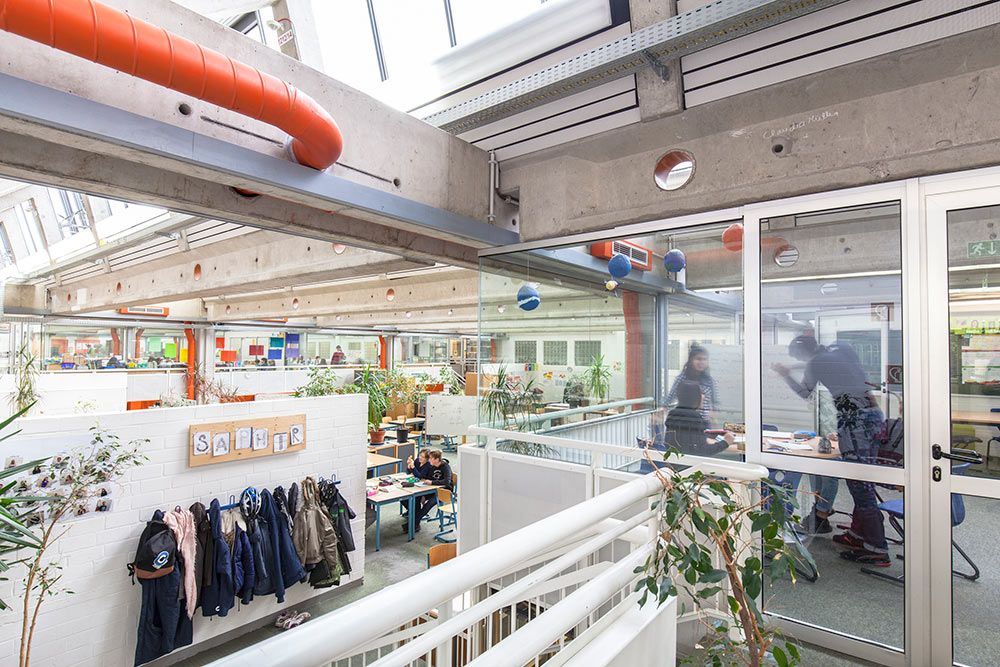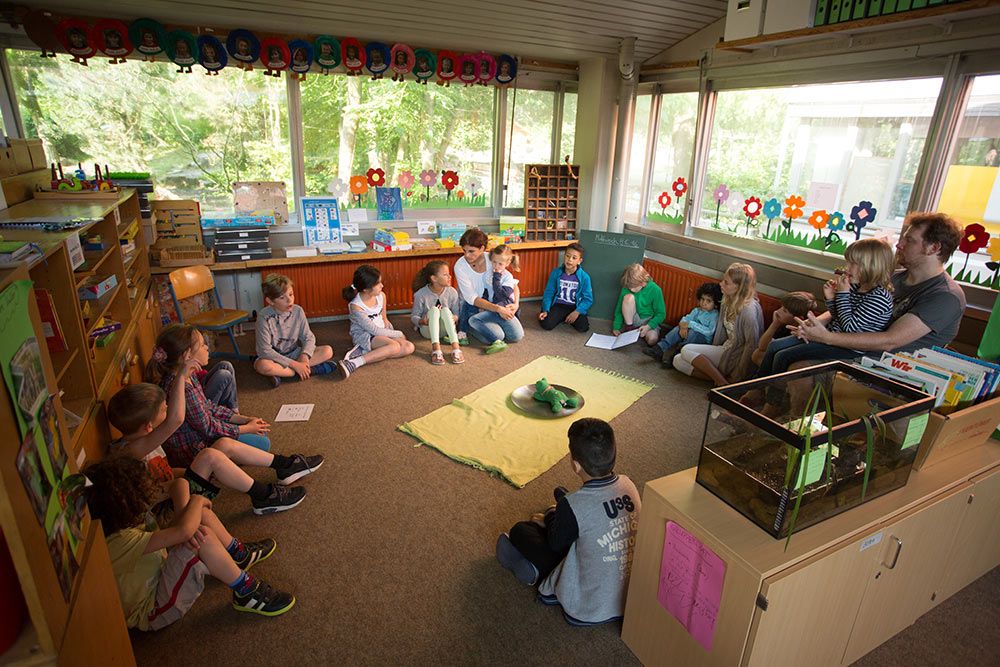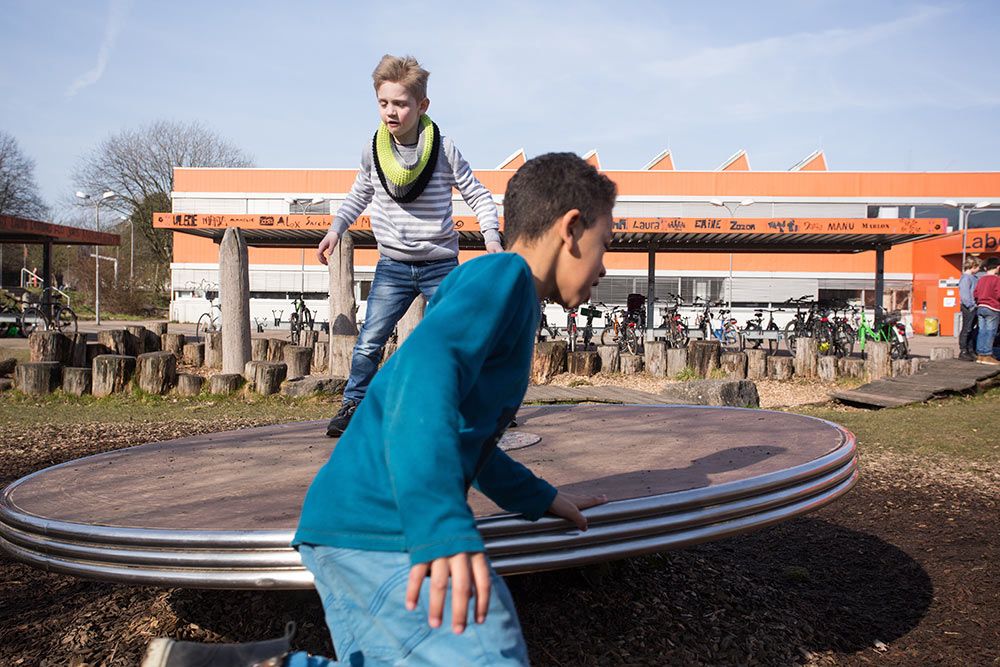Laborschule Bielefeld
As the oldest Lab School in Germany, Laborschule Bielefeld, which is German for “Laboratory School Bielefeld”, has held a unique position within the German educational landscape since its founding in 1974. This is not only due to its pedagogical concept and its focus on democratic education, but also because of its conceptualisation as the public experimental school of the federal state of North Rhine-Westphalia.
As a progressive public school, Laborschule Bielefeld currently teaches 710 students from year 0 (the final pre-school year) to year 10 (end of lower secondary school). As a so-called “Versuchsschule” (experimental school), Laborschule is given the task of developing new forms of learning and living together in the school environment by the federal state government of North Rhine-Westphalia. This means that Laborschule is able to forego a number of typical features of the regular German school system (e.g. no marks until year 9, no homework, no failing classes, mixed-age courses etc.) while still remaining a part of the public education landscape. Here, Laborschule functions also as a role model when developing curricular changes in the overall school system.
At Laborschule Bielefeld, school life is guided by the belief that living and learning should go hand in hand wherever possible. Consequently, Laborschule’s teaching philosophy follows the principle of learning from and through experience instead of focusing primarily on teacher instruction. Students’ journey through the school begins at key stage I (years 0, 1 & 2). This means that students start school at the age of five as opposed to the usual age of six in Germany. In these first three years, the five- to eight-year-olds live and learn together in mixed-age groups. They then move from key stage II (years 3, 4 & 5) to key stage III (years 5, 6 & 7) until they graduate after key stage IV (years 8, 9, & 10). At each key stage, children and young adults encounter new challenges and an increasing number of responsibilities. This culminates in the so-called “challenge project” (“Projekt Herausforderung”) which is organised by students individually or as a group with the purpose of planning and realising their own ideas. Some examples include a one-week-restaurant, a 12-day biking trip, or actions to avoid using any plastic packaging.
Laborschule defines itself as a space in which democratic and communal living can be practised every day. This idea of first-hand experiencing life in a small-scale democracy is put into practice by enabling students to take part in decision-making processes from an early age. For this reason, Laborschule has introduced different elements such as a regular assembly in each group (at least once a week), a school constitution and student parliaments to firmly anchor democratic education in its institutional core. By introducing certain criteria for its student intake, Laborschule also aims at mirroring society by creating a student body which is representative for the city of Bielefeld.
A unique feature of the research carried out at Laborschule is that teachers actively participate in research processes. This idea of “teachers as researchers” was developed by Laborschule*s founder, Hartmut von Hentig, with the aim to link school practice more closely to university teaching and research. As a result, Laborschule consists of two institutions today: On the one hand, Laborschule itself as a state-run experimental school under the supervision of the Ministry of Education, on the other hand, Laborschule’s research unit as part of the Faculty of Educational Science at Bielefeld University and under the supervision of the Ministry of Science.
Educators and researchers from both institutions collaborate in research and development projects (in German: Forschungs- und Entwicklungsprojekte or short: FEPs). One of these FEPs was the starting point for the idea for a collaboration of European lab schools and their research partners. Since participatory school research and democratic education have a long-standing tradition at Laborschule, it is a pleasure being able to collaborate with these institutions all over Europe in the context of the Erasmus+ project “LabSchoolsEurope: Participatory Research for Democratic Education”.

Contact
Alexander Matthias
alexander.matthias@uni-bielefeld.de


